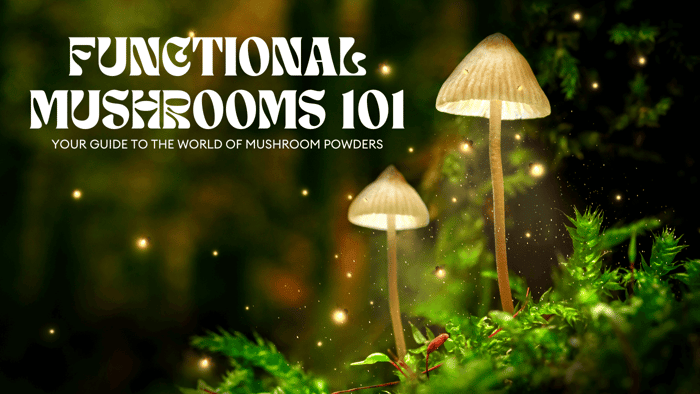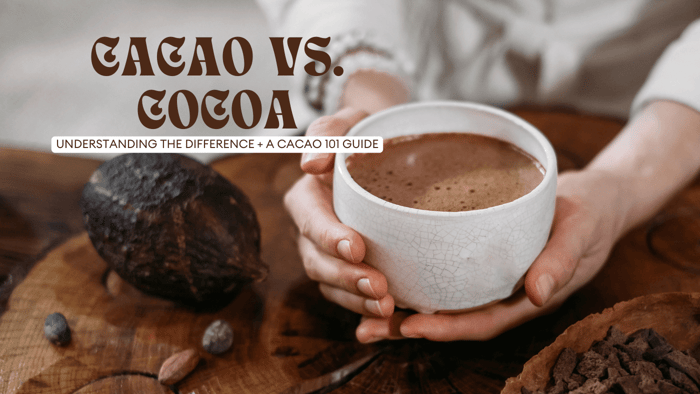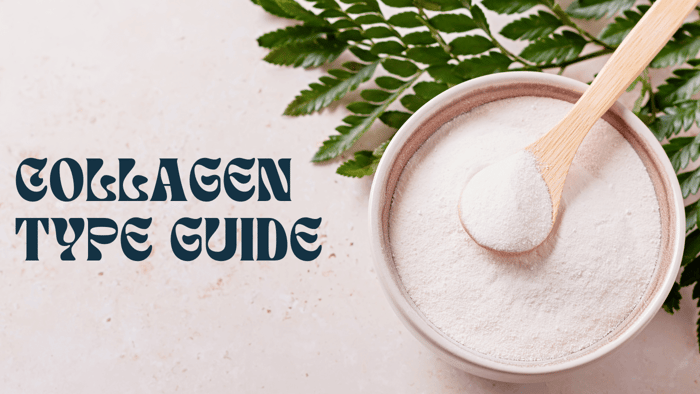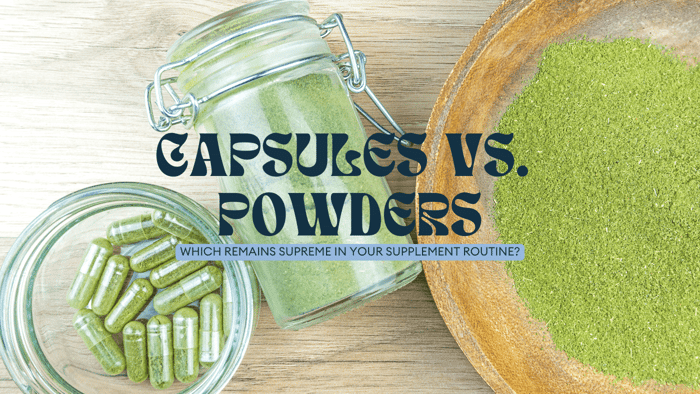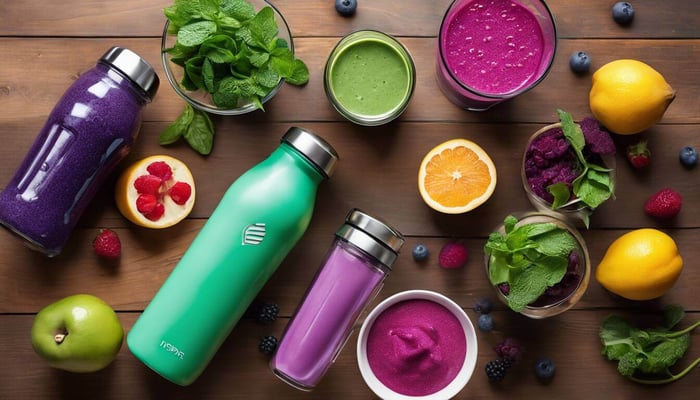The Science Behind Your Morning Drinks
Mornings set the tone for the rest of the day—whether you’re looking for an immediate energy boost, trying to jumpstart your focus, or simply craving soothing morning drinks. And while many of us rely on habitual choices like coffee or tea, the world of morning beverages extends far beyond these classics. From matcha to adaptogenic lattes, your cup can deliver more than just flavor; it can also offer targeted benefits for your mind, body, and emotional well-being.
Let's explore the science and potential perks behind popular morning drinks. We’ll discuss how caffeine interacts with your brain chemistry, why certain herbs can help reduce stress, and why it’s important to pick a beverage that aligns with your personal health goals. Along the way, you’ll get handy tips—like why you may not want to drink coffee on an empty stomach or how to blend that perfect matcha. By the end, you’ll have a clearer idea of how these beverages may support (or, in some cases, hinder) a healthy start to your day.
Coffee: America’s (and the World’s) Favorite Fuel
The Science: Caffeine vs. Adenosine
Coffee’s popularity largely hinges on its caffeine content, a naturally occurring stimulant. Caffeine works by binding to adenosine receptors in the brain. Adenosine is a chemical that accumulates while you’re awake, promoting feelings of tiredness as levels rise. By blocking adenosine, caffeine effectively reduces the sensation of sleepiness. This mechanism explains why so many of us rely on that first cup of coffee to banish morning grogginess.
Additionally, coffee boasts a substantial antioxidant profile, with polyphenols like chlorogenic acid that can help combat oxidative stress. Oxidative stress occurs when an excess of free radicals damages cells, so neutralizing these free radicals supports healthy aging and overall cellular health.
Benefits: Energy, Focus, Metabolism
Immediate Energy Boost
Because caffeine binds to those adenosine receptors, your nervous system experiences a short-term surge in alertness. This can be incredibly helpful for jumpstarting your day—especially if you have an early work shift or morning exercise routine.Enhanced Mental Focus
Many people claim that coffee helps them concentrate better on tasks. Studies suggest that moderate caffeine intake can temporarily improve attention span, reaction time, and certain cognitive functions like problem-solving.Metabolic Support
Caffeine stimulates the nervous system, nudging your body to release stored fats. It may slightly enhance your metabolic rate, although this effect varies from person to person. Keep in mind, though, that additional cream, sugar, or syrups can offset any calorie-burning advantage.
Potential Drawbacks and Tips
Avoiding Jitters: Drinking coffee on an empty stomach can exacerbate jitters and contribute to acid reflux for some individuals. Pair your morning cup with a light breakfast or snack to help buffer the effects of caffeine on your system.
Moderation Matters: Overconsumption of coffee can lead to insomnia, restlessness, and increased heart rate. Health experts generally suggest limiting caffeine intake to 400 mg per day (about four 8-ounce cups of brewed coffee), but tolerance varies widely.
Matcha: A Calm Yet Focused Boost
The Science: L-Theanine for Steady Energy
Matcha is a finely ground powder made from specially grown green tea leaves. Unlike regular green tea, which is steeped and then discarded, matcha involves consuming the entire leaf. This translates to a higher concentration of beneficial compounds—including caffeine and L-theanine. While caffeine in matcha can stimulate alertness, L-theanine works differently. This amino acid promotes a state of “calm focus” by supporting alpha brain waves, which are associated with relaxation without drowsiness.
Additionally, matcha is rich in catechins (a type of antioxidant), particularly epigallocatechin gallate (EGCG). These antioxidants may offer protection against cellular damage and help maintain overall health. The combination of caffeine, L-theanine, and antioxidants sets matcha apart from a standard cup of coffee or black tea.
Benefits: Gentle Stimulation and Antioxidant Power
Prolonged, Steady Energy
Because matcha’s caffeine is modulated by L-theanine, many people experience an even, sustained energy level rather than the sharp spike and crash sometimes associated with coffee.Enhanced Concentration
If you’re studying, meditating, or engaging in creative pursuits, the synergistic effect of caffeine and L-theanine may improve your ability to focus without increasing anxiety.Antioxidant Support
Matcha’s high EGCG content supports your cells by neutralizing free radicals. This can contribute to healthier skin, a more robust immune system, and potentially reduced inflammation.
Tips for Preparing Matcha
Whisk It: Traditionally, matcha is prepared by whisking the powder with hot (but not boiling) water using a bamboo whisk. However, modern tools like an Elixir Mixer offer an easy alternative, helping you incorporate matcha powder evenly.
Creamy Ritual: For a comforting morning beverage, blend matcha with your favorite plant-based milk—like almond, oat, or coconut—and consider adding a touch of sweetness with honey or a zero-calorie sweetener.
Temperature Control: Avoid using boiling water (212°F) as it can scorch the delicate tea powder, resulting in a bitter taste. Aim for about 175°F.
Adaptogenic Lattes: Herbal Support for Stress
The Science: Cortisol Regulation and HPA Axis Balance
Adaptogenic lattes have been gaining traction as more people seek alternatives to caffeine-heavy drinks. Adaptogens are herbs or mushrooms believed to help the body adapt to stress by interacting with the hypothalamic-pituitary-adrenal (HPA) axis. Examples include ashwagandha, which may moderate cortisol (the stress hormone), and reishi mushroom, often praised for its calming qualities.
Rather than offering a strong caffeine buzz, adaptogenic blends are designed to nurture resilience over time. When your HPA axis is well-regulated, you’re better equipped to handle everyday stressors without experiencing energy crashes or excessive tension.
Benefits: Stress Reduction and Steady Energy
Cortisol Balance
High cortisol levels can contribute to anxiety, disrupted sleep, and even weight gain. Adaptogens like ashwagandha may help modulate cortisol output, promoting a more balanced response to stress.Long-Term Resilience
While coffee or energy drinks offer immediate stimulation, adaptogenic lattes aim for cumulative benefits. Consistent use can gradually support improved stress tolerance and stable energy throughout the day.HPA Axis Support
Herbs like holy basil, astragalus, and rhodiola are other popular adaptogens that may further nourish the endocrine system. Each has unique properties—holy basil is often regarded as soothing, while rhodiola is used for endurance and vitality.
Tips for a Morning Adaptogenic Latte
- Choose Your Base: Many people prefer nut milks or coconut milk for a creamy texture.
- Blend Thoroughly: If you’re mixing powdered adaptogens, a tool like the Elixir Mixer can help ensure your herbs disperse evenly, preventing gritty clumps.
- Flavor Enhancers: Cinnamon, vanilla extract, or a hint of cocoa powder can complement the sometimes earthy taste of adaptogenic herbs.
Herbal Teas: A World of Possibilities
The Science: Polyphenols, Flavonoids, and More
Herbal teas (technically “tisanes”) come from infusions of various plants, flowers, or roots—everything from chamomile and peppermint to hibiscus and rooibos. Because each plant has a unique profile of beneficial compounds—like polyphenols, flavonoids, or tannins—herbal teas can be quite specialized. For example, chamomile contains apigenin, linked to relaxation, while peppermint’s menthol may support digestion.
These compounds can provide targeted benefits, whether you’re seeking support for restful sleep, gut health, or cardiovascular well-being. Unlike coffee and matcha, herbal teas are often caffeine-free, which appeals to those who want a gentle, soothing start to the day without the stimulating effects.
Benefits: Gentle Focus, Digestive Comfort, or Heart Health
Stress Reduction
Chamomile and lavender are frequently brewed to promote calm, making them good choices for individuals who wake up anxious or stressed.Digestion Support
Peppermint or ginger teas can help settle the stomach, stimulate digestion, or alleviate mild digestive complaints. For those prone to morning stomach issues, a peppermint tea can be a welcome relief.Cardiovascular Well-Being
Hibiscus tea has been studied for its potential to support healthy blood pressure levels. Its tart, cranberry-like flavor can also serve as a refreshing morning beverage.
Tips for Morning Herbal Teas
- Match Your Mood: With countless herbal blends available, choose a tea that aligns with your emotional state or wellness goal. Feeling stressed? Opt for chamomile. Need an uplifting taste? Try rosehip or lemon balm.
- Brew Time: Different herbs release their beneficial compounds at different rates. Steep for at least 5–10 minutes to extract the full range of flavors and phytonutrients.
- Temperature Control: Many herbal teas don’t require scalding water. Experiment with steeping temperatures and times, adjusting to achieve the flavor intensity you prefer.
Making the Right Choice for You
Each of these morning drinks offers distinct qualities and potential advantages—but they also come with caveats. Coffee’s caffeine can improve mental performance yet contribute to anxiety in those who are sensitive. Matcha provides antioxidants and steadier energy but might be costlier and require specific preparation methods. Adaptogenic lattes support long-term resilience, though their effects typically unfold more slowly than caffeine-based drinks. Herbal teas can be incredibly soothing but don’t deliver the same immediate jolt of energy some people rely on.
To decide what’s right for you, consider these factors:
Your Personal Energy Needs
Do you need a strong wake-up call or a gentle introduction to your day? Coffee and matcha might be better for a quick burst of alertness, while adaptogenic lattes or herbal infusions are suited for a calm, sustained approach.Your Stress Levels
If you’re already dealing with high stress, upping your caffeine intake could aggravate nervousness or insomnia. Stress-management drinks like adaptogenic lattes or calming herbal teas may be more supportive.Taste Preferences
Enjoying what you drink is essential. If you can’t stand the bitter notes of matcha, no amount of antioxidant content is likely to make you stick with it. Exploring different sweeteners or add-ons (like cinnamon or vanilla) might help, but there’s no substitute for a flavor you genuinely love.Health Goals
Maybe you’re seeking to support gut health, or perhaps you want to enhance focus for a demanding work project. Matching your beverage to your current health or productivity goals can make the choice more straightforward.Timing and Lifestyle
Consider the time you have in the morning. If you’re rushing out the door, a quick coffee might be easiest. If you have 10–15 minutes for self-care, whisking up a matcha or adaptogenic latte can become a soothing ritual rather than a chore.

While this quote may sound dramatic, it underscores the reality that each choice you make about food or drink has physiological implications. Coffee, matcha, adaptogenic lattes, and herbal teas can either support your well-being or potentially exacerbate existing concerns—depending on your health status, stress levels, and consumption habits. That’s why it’s worth investing a bit of time to experiment, research, and tune into your body’s signals.
Remember, no single drink is a magic bullet. A cup of coffee won’t guarantee productivity if you’re not also getting enough sleep and practicing time management. Similarly, sipping an adaptogenic latte won’t magically erase your stress if you continue to neglect rest days or set no boundaries around work. Ideally, your morning drink complements a broader lifestyle plan that includes balanced meals, regular movement, sufficient sleep, and mindfulness practices.
What’s in Your Cup?
Your morning beverage is more than just a quick fix. It’s an opportunity—a ritual—that can support mind-body health in diverse ways. By understanding the science behind coffee’s adenosine-blocking effects, the synergy of caffeine and L-theanine in matcha, the stress-modulating properties of adaptogens, and the targeted benefits of specific herbal infusions, you empower yourself to make informed decisions. You can optimize your morning routine not only for taste and enjoyment but also for nourishment and well-being.
If you decide you need the classic jolt of coffee, go for it—just consider having it with some breakfast to soften potential jitters. If you’re intrigued by matcha’s unique blend of calm and focus, grab your whisk or Elixir Mixer and turn it into a mindful morning ceremony. For those striving for stress resilience, experiment with ashwagandha or reishi adaptogenic lattes and observe how your body responds over time. And if you’re seeking a gentle, caffeine-free path, explore the vibrant world of herbal teas, matching different blends to your evolving needs and moods.
Ultimately, the best morning drink is one that aligns with who you are, what you crave, and what your lifestyle can accommodate. Tomorrow, as you stand at your kitchen counter deciding what to pour into your mug, remember that you’re also choosing how to prepare your mind and body for the day ahead. And with so many science-backed beverage options, you’ll never have to settle for a one-size-fits-all approach to your morning routine.
What’s in your cup this morning? Hopefully, after reading this, you’ll be a step closer to selecting the right beverage for your needs—one that not only tastes good but also serves as a powerful ally in your journey toward holistic health.

